1500+ ★★★★★ REVIEWS
Medical Treatment Side Effects & Hair Loss: Causes, Solutions, and Prevention
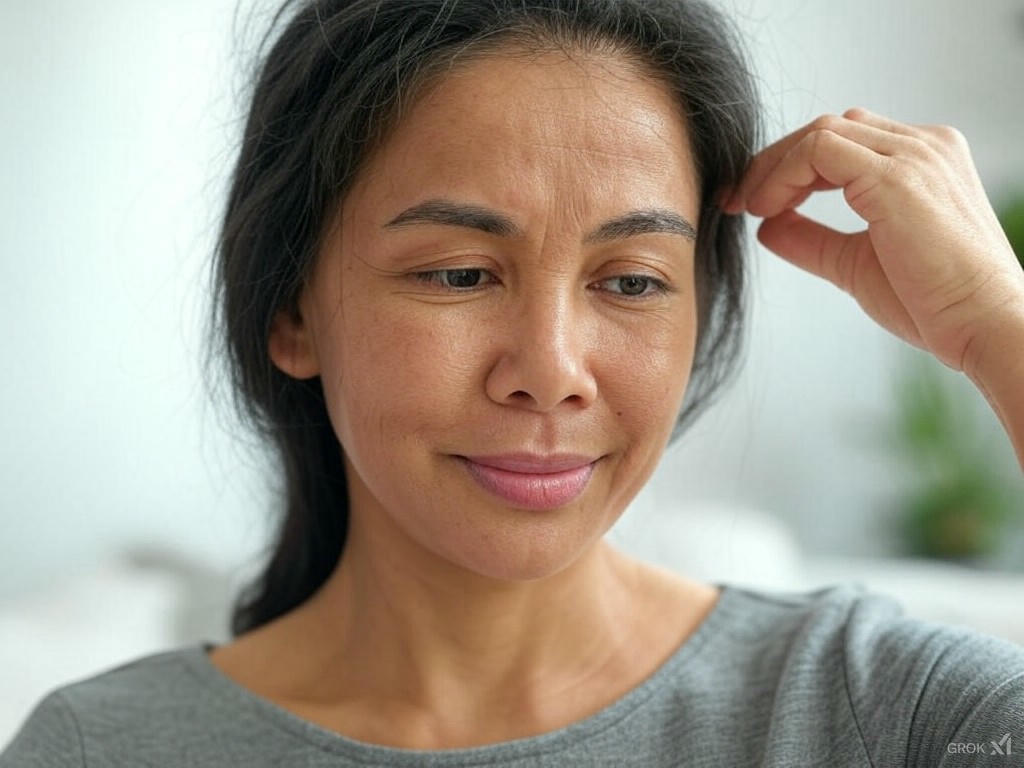
Hair loss can be a distressing side effect of medical treatments. Whether it’s chemotherapy, radiation, or prescription medications, many individuals experience temporary or permanent hair thinning due to these treatments. Understanding why this happens and how to manage it can make a significant difference in one’s confidence and well-being.
Table of Contents
What Causes Hair Loss from Medical Treatments?
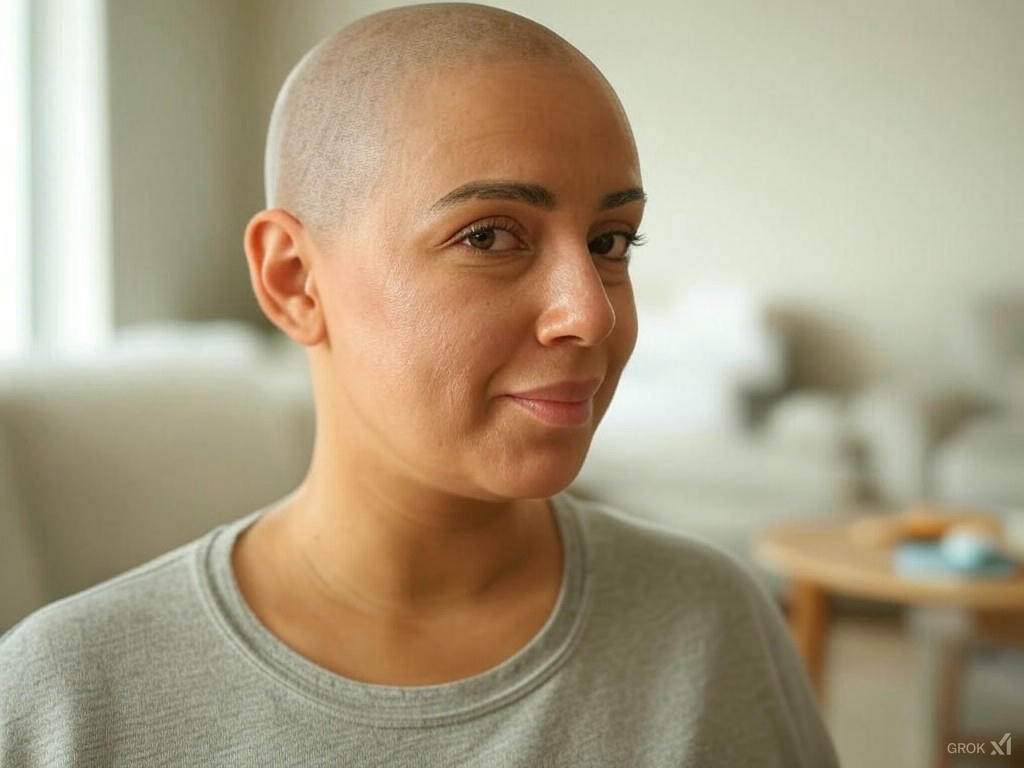
Hair loss from medical treatments occurs when medications or therapies disrupt the hair growth cycle or damage hair follicles. Chemotherapy targets rapidly dividing cells, including those in hair follicles, leading to widespread hair loss. Radiation therapy causes localized hair loss in treated areas, with the possibility of permanent damage at high doses. Certain prescription medications, such as blood thinners, antidepressants, and hormone therapies, can trigger temporary or long-term shedding. The extent and duration of hair loss depend on the type of treatment, dosage, and individual response, but in many cases, hair regrows once treatment ends.
1. Chemotherapy-Induced Hair Loss
Chemotherapy-induced hair loss, also known as chemotherapy-related alopecia, is a common side effect of cancer treatment that can have significant emotional and psychological impacts. Chemotherapy drugs target rapidly dividing cells, which include both cancer cells and healthy cells such as those in the hair follicles. As a result, hair growth is disrupted, leading to thinning or complete hair loss on the scalp and sometimes on other parts of the body, including eyebrows, eyelashes, and body hair. The severity of hair loss depends on the type and dosage of chemotherapy drugs used, with some treatments causing only mild thinning and others leading to total baldness.
Hair loss from chemotherapy is usually temporary, with regrowth beginning a few weeks to months after treatment ends. However, the texture, color, or thickness of the new hair may be different from what it was before. To cope with the emotional challenges of hair loss, many individuals explore options such as wigs, scarves, or cold caps, which can help reduce hair loss by cooling the scalp during treatment. Support from loved ones, counseling, and connecting with others who have experienced similar challenges can also play a crucial role in managing the psychological effects of hair loss. While it is a difficult side effect to endure, many find comfort in knowing that their hair will likely return over time.
Source: American Cancer Society on Chemotherapy and Hair Loss
2. Radiation Therapy and Hair Loss
Radiation therapy can cause hair loss, but unlike chemotherapy, which affects the entire body, radiation-induced hair loss is localized to the area being treated. When radiation is directed at the scalp or other hair-bearing regions, it damages the hair follicles in the targeted area, leading to hair thinning or complete loss. The extent of hair loss depends on factors such as the radiation dose, frequency of treatment, and individual sensitivity. In some cases, hair may grow back within a few months after treatment ends, but at higher doses, hair loss can be permanent due to long-term follicle damage.
The regrowth of hair after radiation therapy may come with changes in texture, color, or thickness, similar to chemotherapy-related hair loss. Patients undergoing radiation to the head or neck often explore options like wigs, scarves, or hairpieces to manage their appearance during and after treatment. Scalp care is also essential, as radiation can make the skin in the treated area more sensitive and prone to irritation. Emotional support from loved ones, counseling, and connecting with others who have experienced similar challenges can help individuals cope with the psychological effects of hair loss, as they navigate both the physical and emotional aspects of their cancer treatment.
Source: National Cancer Institute on Radiation Therapy
3. Prescription Medications and Hair Loss
Certain prescription medications can cause hair loss as a side effect, either by disrupting the hair growth cycle or by damaging hair follicles. Medications such as blood thinners, antidepressants, beta-blockers, and certain acne treatments can lead to increased shedding or thinning hair. Other drugs, including those used for chemotherapy, autoimmune diseases, and hormone therapies, may cause more significant or even permanent hair loss. The mechanism of medication-induced hair loss varies; some drugs trigger telogen effluvium, a temporary shedding phase, while others cause anagen effluvium, which disrupts active hair growth and leads to more sudden and widespread hair loss.
In many cases, hair loss from prescription medications is reversible once the drug is discontinued, but regrowth may take several months. For individuals who must continue taking the medication, options such as topical treatments, supplements, or alternative prescriptions may help minimize hair loss. Consulting a healthcare provider is essential to determine the best course of action, whether it involves switching medications, adjusting the dosage, or using hair-supportive treatments. Managing the emotional impact of medication-related hair loss is also important, and support from healthcare professionals, loved ones, or online communities can help individuals navigate this challenge.
Common culprits include:
- Blood thinners (e.g., Heparin, Warfarin)
- Antidepressants (e.g., Prozac, Zoloft)
- Beta-blockers (e.g., Atenolol, Metoprolol)
- Hormonal therapies (e.g., birth control pills, hormone replacement therapy)
- Acne medications with Vitamin A derivatives (e.g., Isotretinoin)
Source: Mayo Clinic on Medication Side Effects
Solutions for Medical Treatment-Related Hair Loss
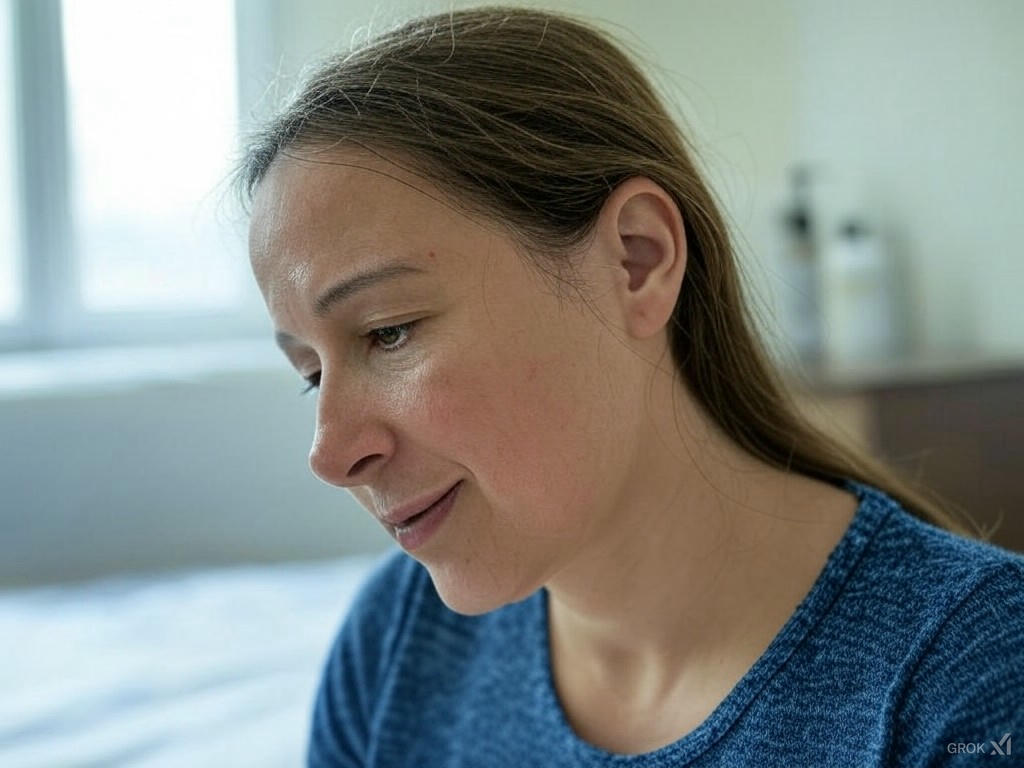
Solutions for medical treatment-related hair loss focus on managing its impact and promoting regrowth. Scalp cooling caps may help reduce chemotherapy-induced hair loss, while gentle hair care and moisturizing can protect the scalp during radiation therapy. Wigs, scarves, and hats provide aesthetic options for those experiencing hair loss. Medications like minoxidil may aid in regrowth after treatment ends, and nutritional support can strengthen hair health. Consulting a healthcare provider about alternative treatments or dosage adjustments may also help. Emotional support from loved ones, counseling, and support groups can be crucial in coping with hair loss.
While some hair loss is unavoidable, there are medical and non-medical solutions to consider.
Medical Solutions
Medical solutions for hair loss aim to slow hair thinning, promote regrowth, and improve overall scalp health. Treatments vary based on the cause of hair loss and may include medications, therapies, or surgical options. Common solutions include FDA-approved drugs like minoxidil and finasteride, low-level laser therapy, and platelet-rich plasma (PRP) injections. For more advanced cases, hair transplant surgery may be an option. Consulting a healthcare professional can help determine the most effective treatment plan based on individual needs and hair loss patterns.
1. Minoxidil (Rogaine)
Minoxidil is an FDA-approved topical treatment that helps regrow hair in some individuals. It may be effective in cases of medication-induced hair thinning.
2. Finasteride (Propecia)
Finasteride is a prescription medication that can help slow hair loss in men. It is not recommended for women of childbearing age.
3. Platelet-Rich Plasma (PRP) Therapy
PRP therapy involves injecting a concentration of platelets from your own blood into the scalp to promote hair regrowth.
Source: Dermatology Journal on PRP for Hair Loss
Non-Medical Solutions
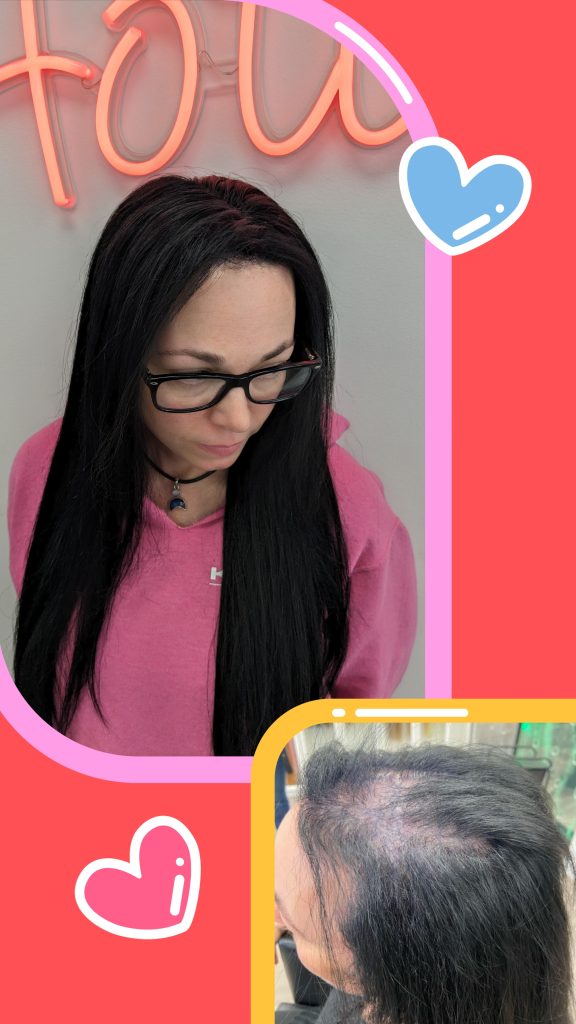
Non-medical solutions provide an excellent way to conceal hair thinning while your natural hair recovers. These options offer immediate volume and coverage, helping restore confidence without requiring medical treatment.
1. Mesh Integration System
Mesh integration is a non-surgical hair restoration solution ideal for those experiencing moderate to severe hair loss. It involves integrating natural-looking hair into a breathable mesh system attached to the scalp. Hottie Hair Salon & Extensions Store offers expert mesh integration services.
Learn more: Hottie Hair Mesh Integration
2. Hair Toppers
Hair toppers provide coverage for thinning hair, especially at the crown. They are lightweight and blend seamlessly with natural hair.
Find the perfect topper: Hottie Hair Toppers
3. Wigs and Extensions
High-quality wigs and hair extensions are great options for full coverage. Whether synthetic or human hair, a well-fitted wig can restore confidence during hair regrowth.
4. Scalp Micropigmentation (SMP)
SMP is a non-surgical cosmetic procedure where pigment is deposited into the scalp to mimic the appearance of hair follicles.
Preventing and Managing Hair Loss
Preventing and managing hair loss involves a combination of healthy lifestyle choices, proper hair care, and medical treatments when necessary. Maintaining a balanced diet, reducing stress, and avoiding harsh hair treatments can help support hair health. For those experiencing hair thinning, early intervention with treatments like minoxidil, scalp massages, or low-level laser therapy may slow hair loss and promote regrowth. Consulting a healthcare professional can help identify underlying causes and determine the best approach for prevention and management.
While not all hair loss can be prevented, certain steps can minimize damage:
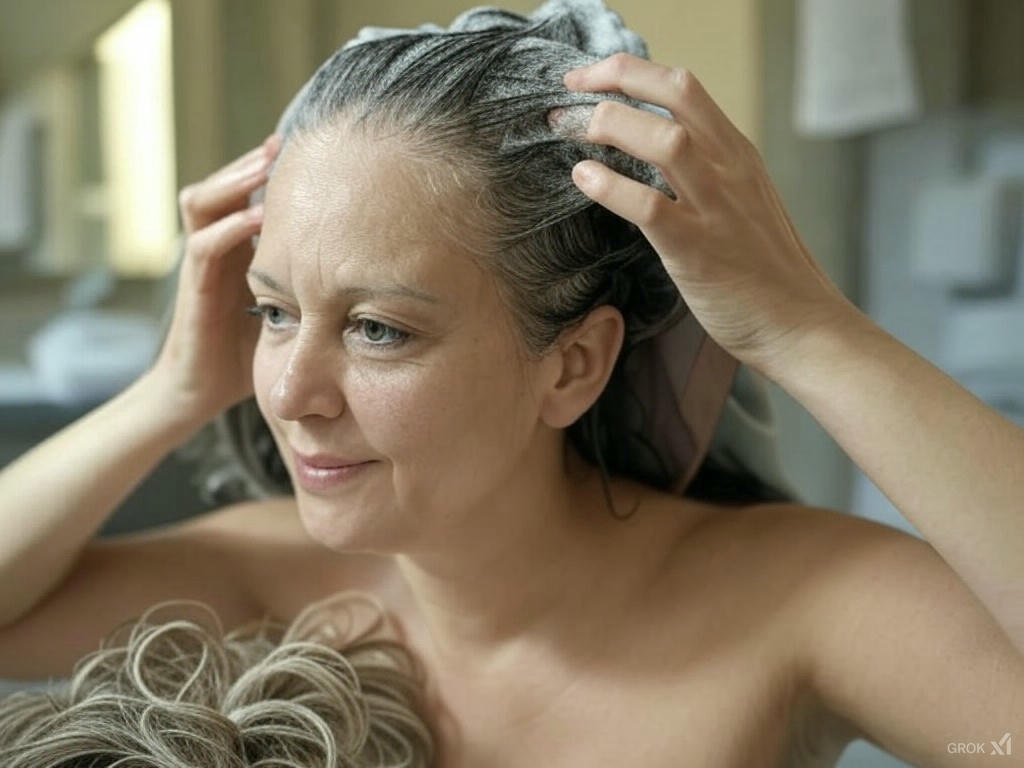
1. Scalp Care
- Use gentle, sulfate-free shampoos.
- Massage the scalp to improve circulation.
- Avoid excessive heat styling.
2. Nutrition and Supplements
- Eat a balanced diet rich in biotin, iron, and protein.
- Consider supplements like Vitamin D, Zinc, and Omega-3 fatty acids.
3. Stress Management
Stress can exacerbate hair loss. Practices such as yoga, meditation, and regular exercise can help manage stress levels.
Frequently Asked Questions (FAQ)
1. Will my hair grow back after chemotherapy?
In most cases, hair lost due to chemotherapy will grow back after treatment ends, though the timing and texture of regrowth can vary. Hair typically starts to regrow within a few weeks to months after the last chemotherapy session, but it may initially be finer, curlier, or a different color than before. Over time, the hair usually returns to its original texture and thickness. In rare cases, high-dose chemotherapy may cause permanent hair thinning or changes. Using gentle hair care practices, staying hydrated, and maintaining a healthy diet can help support the regrowth process.
2. How long does medication-induced hair loss last?
Medication-induced hair loss typically lasts as long as the medication is being taken, and hair usually begins to regrow once the medication is discontinued. In cases of temporary hair loss, such as with medications that cause telogen effluvium, regrowth often starts within a few months after stopping the drug. However, for medications that cause more severe hair loss or follicle damage, such as those used for chemotherapy, regrowth may take longer or may require additional treatments to support hair health. It’s important to consult a healthcare provider to determine the best course of action if medication-induced hair loss becomes a concern. Once the medication is discontinued, hair regrowth usually resumes within 6–12 months.
3. Is mesh integration safe for sensitive scalps?
Mesh integration can be a safe option for individuals with sensitive scalps, but it requires careful consideration and proper technique. This method involves attaching hair extensions or wefts to a mesh base, which is then secured to the scalp. For sensitive scalps, it’s important to ensure the mesh is applied correctly, using gentle adhesives or non-invasive methods to avoid irritation. A skilled professional will assess the scalp’s condition and adjust the application process to minimize discomfort. If the scalp is extremely sensitive or prone to conditions like dermatitis, consulting with a dermatologist or a hair specialist beforehand is recommended to ensure that mesh integration is a suitable option. Hottie Hair Salon & Extensions Store specializes in safe applications for various scalp conditions.
4. Can I use Minoxidil while undergoing medical treatment?
Minoxidil can often be used while undergoing medical treatments, such as chemotherapy or radiation, to help promote hair regrowth, but it is important to consult with a healthcare provider before starting or continuing its use. Minoxidil works by stimulating hair follicles and improving blood flow to the scalp, which can be beneficial for individuals experiencing hair thinning or loss. However, certain medical treatments may interact with minoxidil, or your healthcare provider may advise against its use based on your specific condition or the medications you are taking. Always follow professional guidance to ensure that minoxidil is safe and effective for your situation.
5. Are there natural remedies to prevent hair loss?
There are several natural remedies that may help prevent hair loss, although their effectiveness varies and scientific evidence is often limited. Common natural options include massaging the scalp with essential oils like rosemary or peppermint, which are believed to improve blood circulation and stimulate hair growth. Aloe vera is another popular remedy, known for its soothing properties and potential to nourish the scalp. Additionally, maintaining a nutrient-rich diet with vitamins and minerals such as biotin, zinc, and iron can support healthy hair growth. While these remedies can be beneficial for general scalp health, it’s important to consult a healthcare provider if hair loss persists or worsens, as underlying medical conditions may require professional treatment.
6. Where can I find high-quality hair toppers and extensions?
High-quality hair toppers and extensions can be found at specialized beauty stores that offer a wide range of premium hair products. One great option is Hottie Hair Salon & Extensions Store, known for its extensive collection of top-tier hair extensions and toppers. They offer a variety of styles, lengths, and colors, ensuring a perfect match for your natural hair. Whether you’re looking for a temporary boost or long-term solution, Hottie Hair Salon & Extensions provides personalized consultations and expert fitting to ensure you find the best product for your needs. Their commitment to quality and customer satisfaction makes them a trusted choice for those seeking luxurious, natural-looking hair enhancements. Explore options here.

Hair loss due to medical treatments can be challenging, but with the right solutions, you can regain confidence and maintain a stylish look. Whether through medical treatments, non-surgical options like mesh integration, or high-quality wigs, there is a solution for everyone. Visit Hottie Hair Salon & Extensions Store for expert guidance and premium hair restoration solutions.
You must be logged in to post a comment.